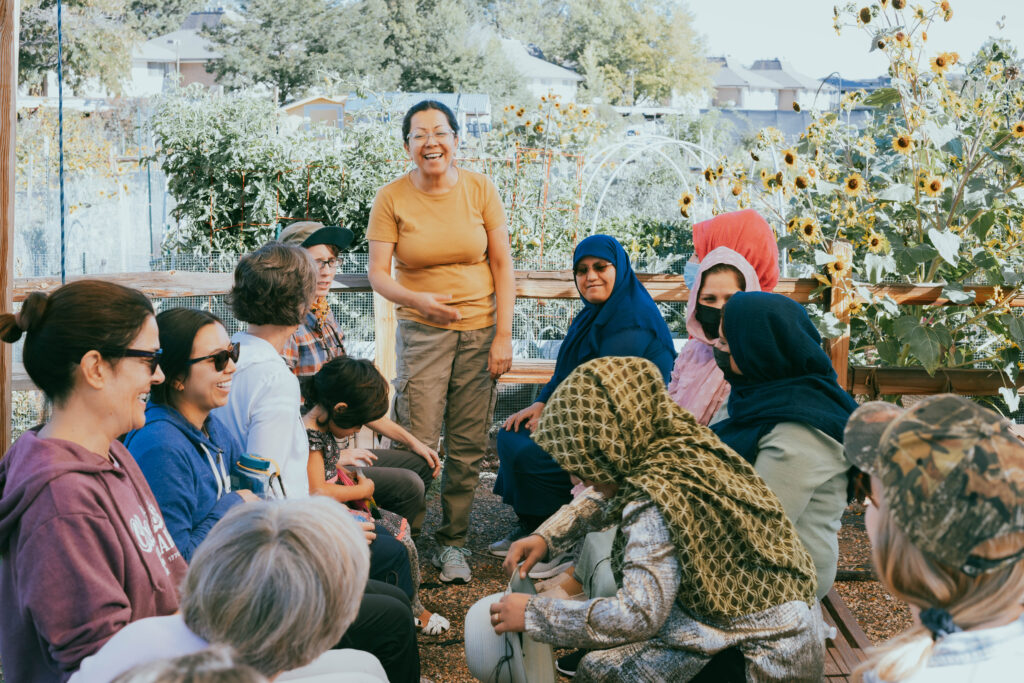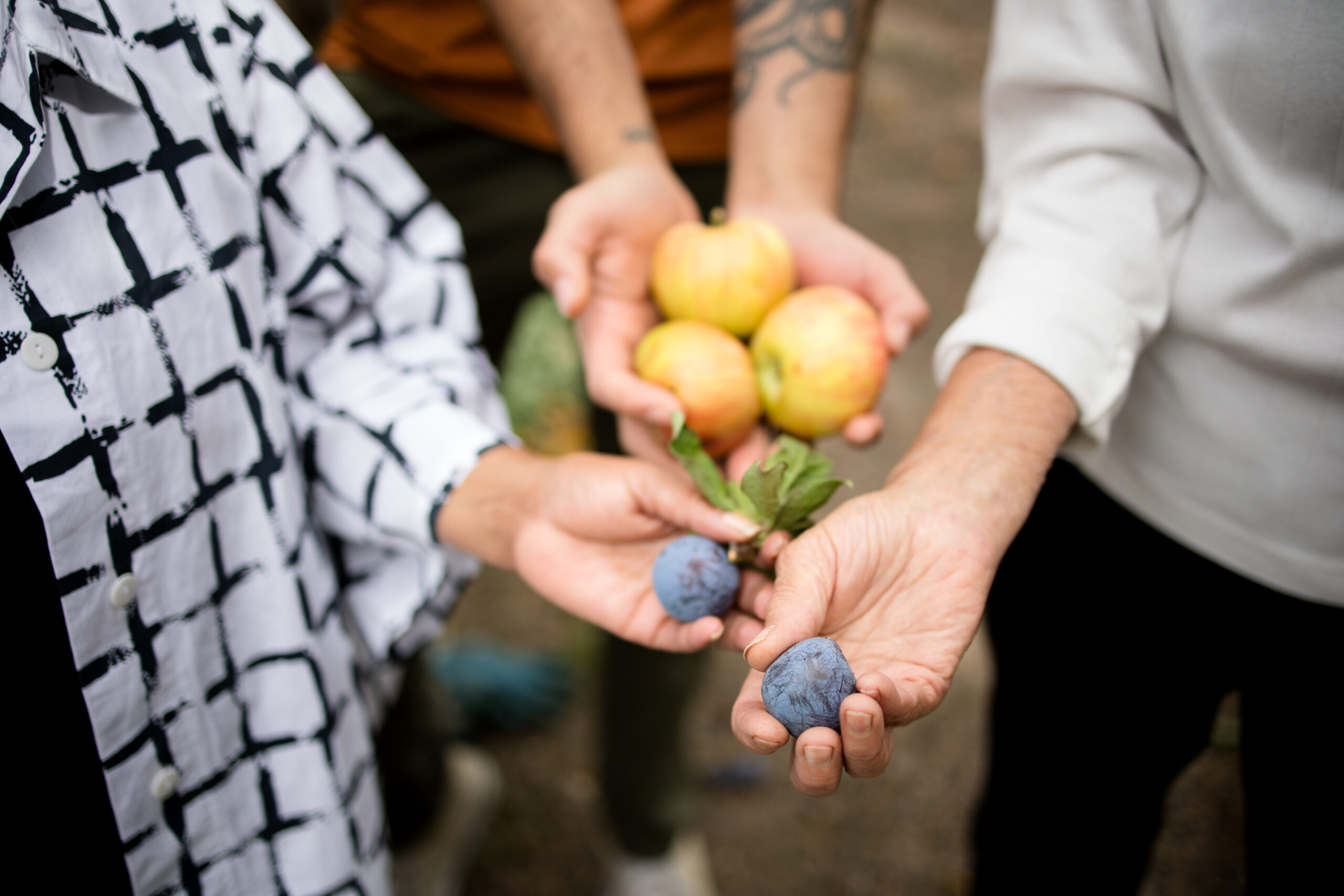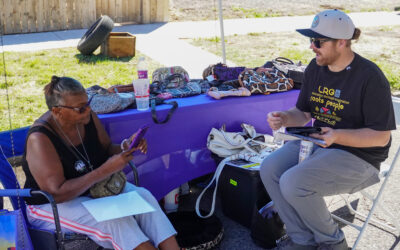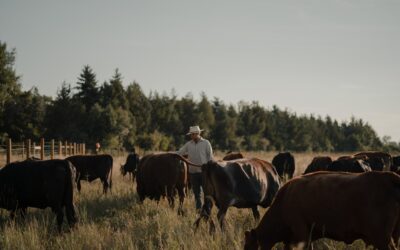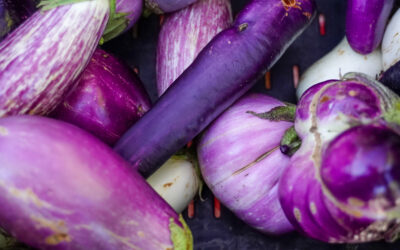
Universal Basic Food
The industrial food system is increasingly failing to fulfill its basic goal: preventing hunger by feeding people adequately and sustainably. Universal Basic Food, distributed through a Community Food Utility, would provide guaranteed access to nutrient-dense, culturally relevant food for free, regardless of income.
Metro Caring is working to pilot Universal Basic Food to demonstrate the potential of moving access to nutrient-dense and culturally rooted foods to a public good. As a Community Food Utility, we could ensure that our food system is accessible, equitable, and centered on human dignity, not profit.
The Impacts of an Industrial Food System
Our current system is rooted in the belief that food is an object that must be traded for as little money as possible neglecting that access to food is a human right. This leads to major impacts on our environment, local economies, and health.
Environment
Industrial farming practices and global supply chains lead to environmental degradation.
Local Economies
A handful of large corporations own most agriculture and food markets, extracting more wealth than they contribute.
Health
Prevalence of low-nutrient food and high costs for fresh, nutritious foods leads to widespread health issues.
The Community Food Utility Model
Hunger is a market failure. Traditional markets or food assistance programs have not—and will not—sufficiently provide food security. Markets work well for those who can afford to buy nutritious foods. However, those unable to afford food are excluded from their most basic human right: access to food.
A community food utility allows the decisions on the production, buying, and distribution of food to be determined democratically by utility members rather than by a select few people who control big food businesses.

Potential Program Areas of a Community Food Utility
Based on our research with New Impact, we identified these five potential program areas. True food sovereignty requires co-creating solutions with producers, distributors, and consumers. These programs will evolve and change as we work to develop a Community Food Utility.
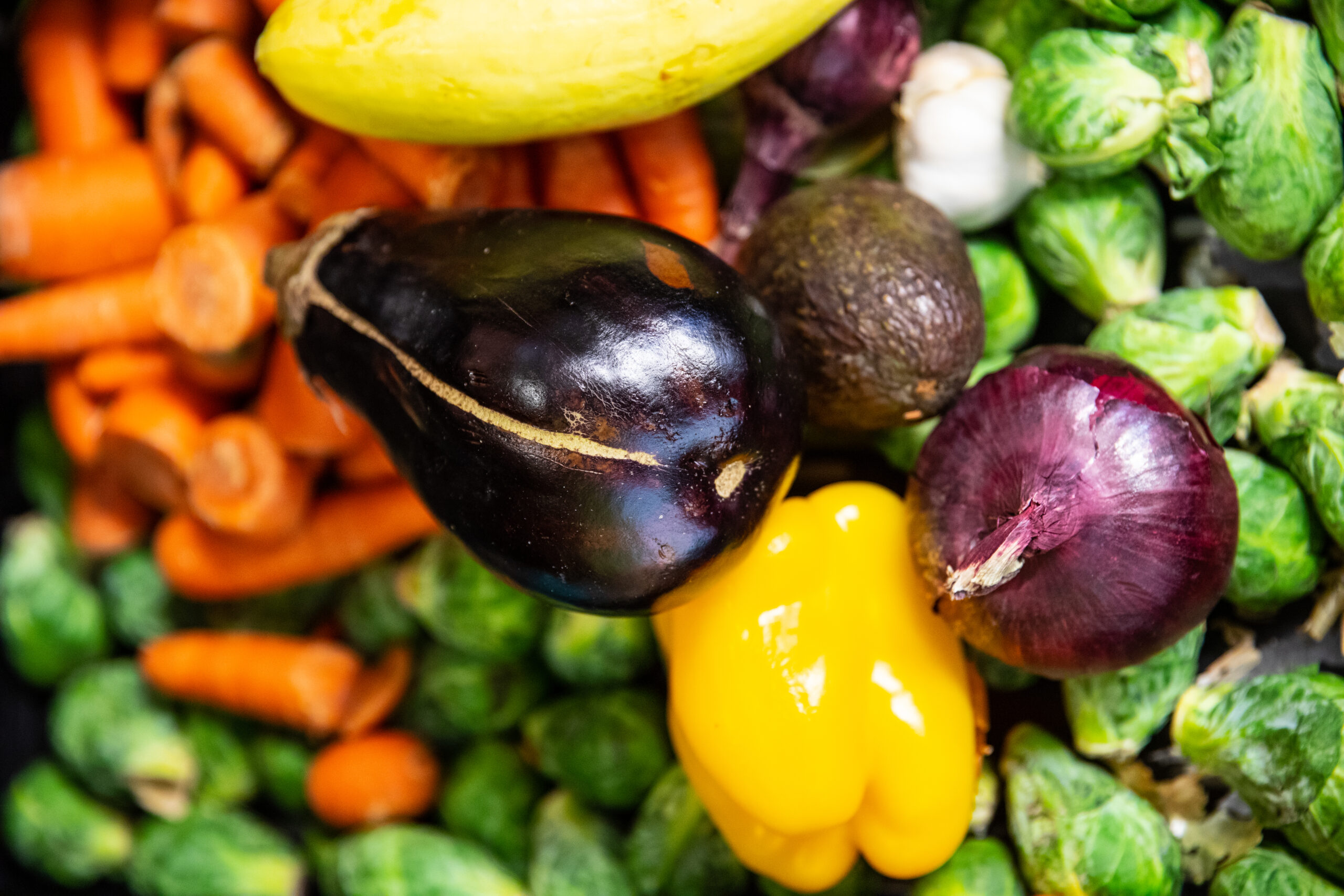
Universal Basic Food
This flagship program will provide a selection of high-quality, nutrient-dense, desired, and culturally connected food items, freely available to all utility members at select locations near public transportation throughout the county. Community members select UBF’s food items, sourcing priorities, and quality standards.
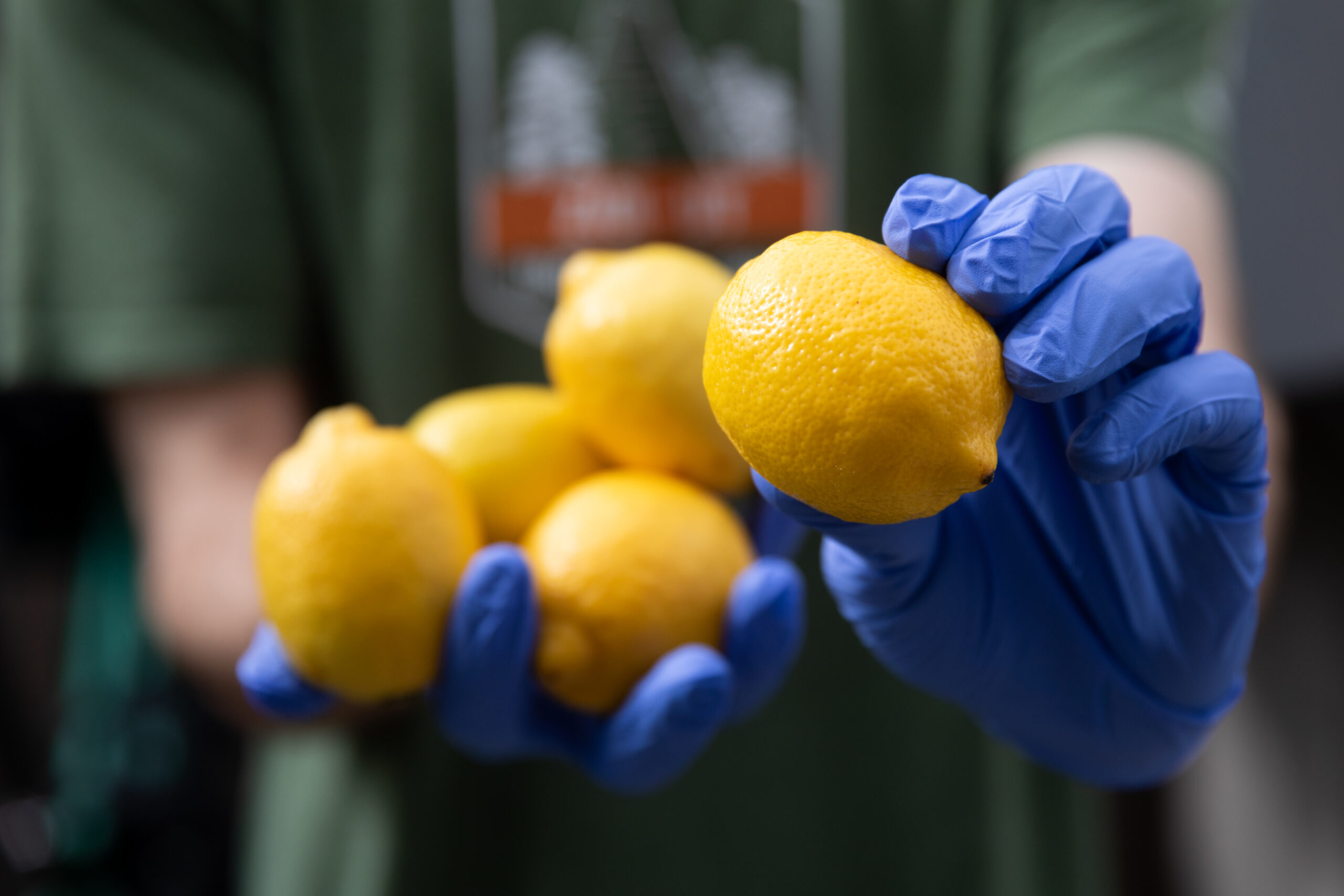
Discount Food
A wide selection of food and household items discounts will be available at UBF food retailers/depots and competing retailers. Through partnerships with network retailers, food important to community but not within sourcing guidelines can be offered at discounted rates.
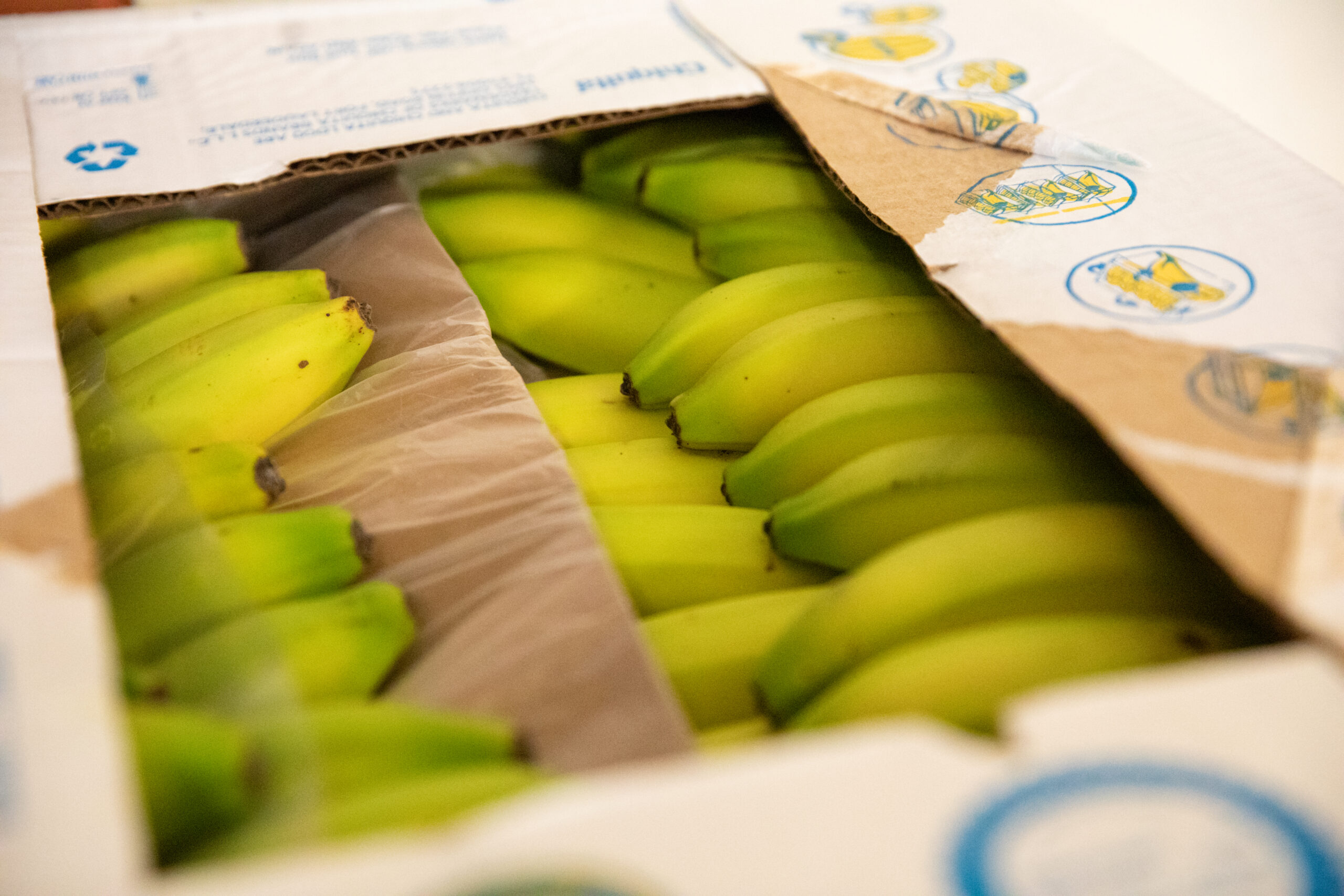
Emergency Food Supply
Given recent climate, health, and supply chain pressures, a food utility recognizes the need to strengthen the resilience of local food systems. The utility will ensure that a 30-day supply of shelf-stable goods are in stock and readily available to all residents in case of emergency.
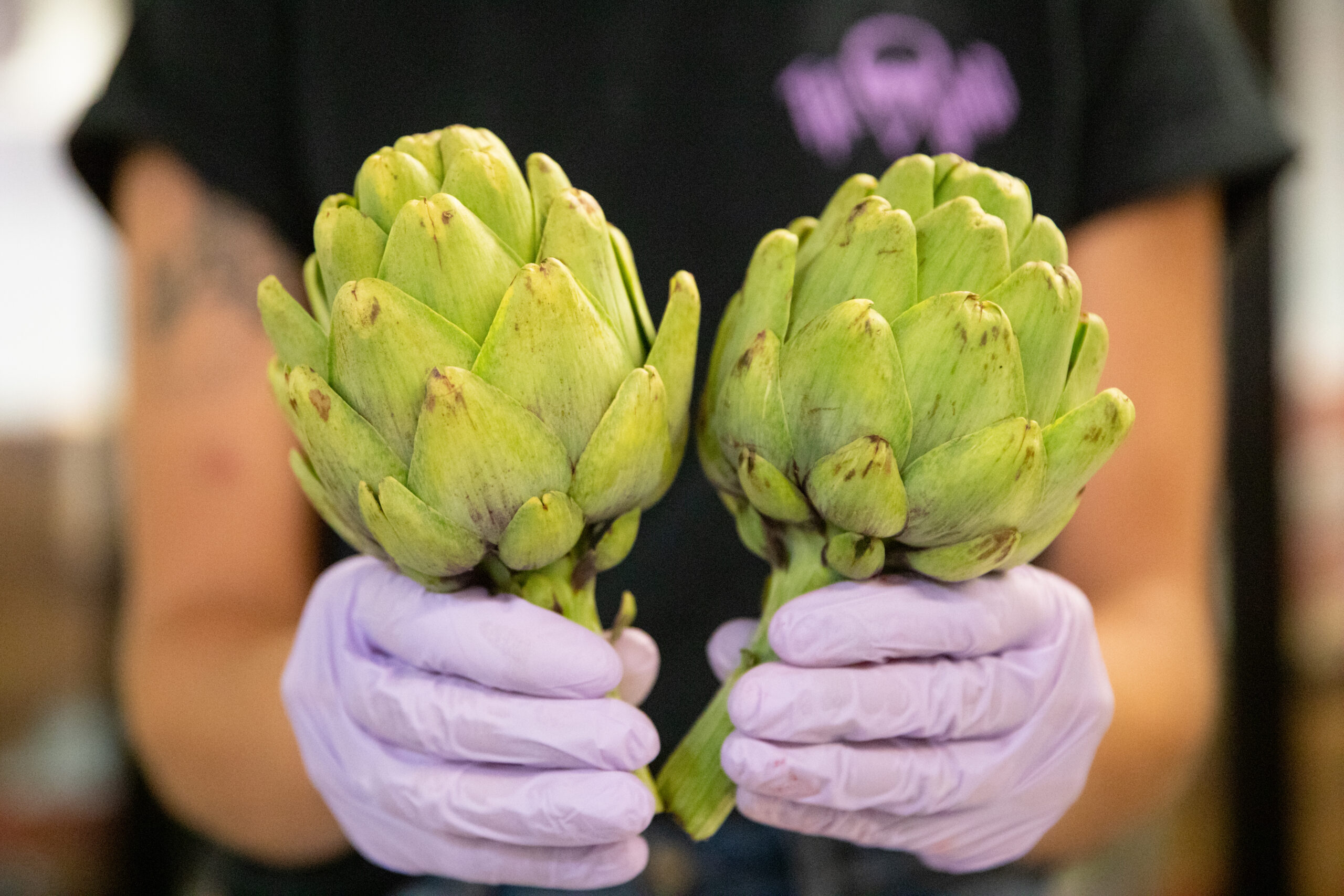
Cash Stipends & Dividends
Residents will have the potential to receive predictable, steady monthly cash stipends to spend on preferred food not offered in the UBF program or other needs. In addition, based on the performance of the utility, residents can receive cash dividends, when available, when utility revenue exceeds expenses.
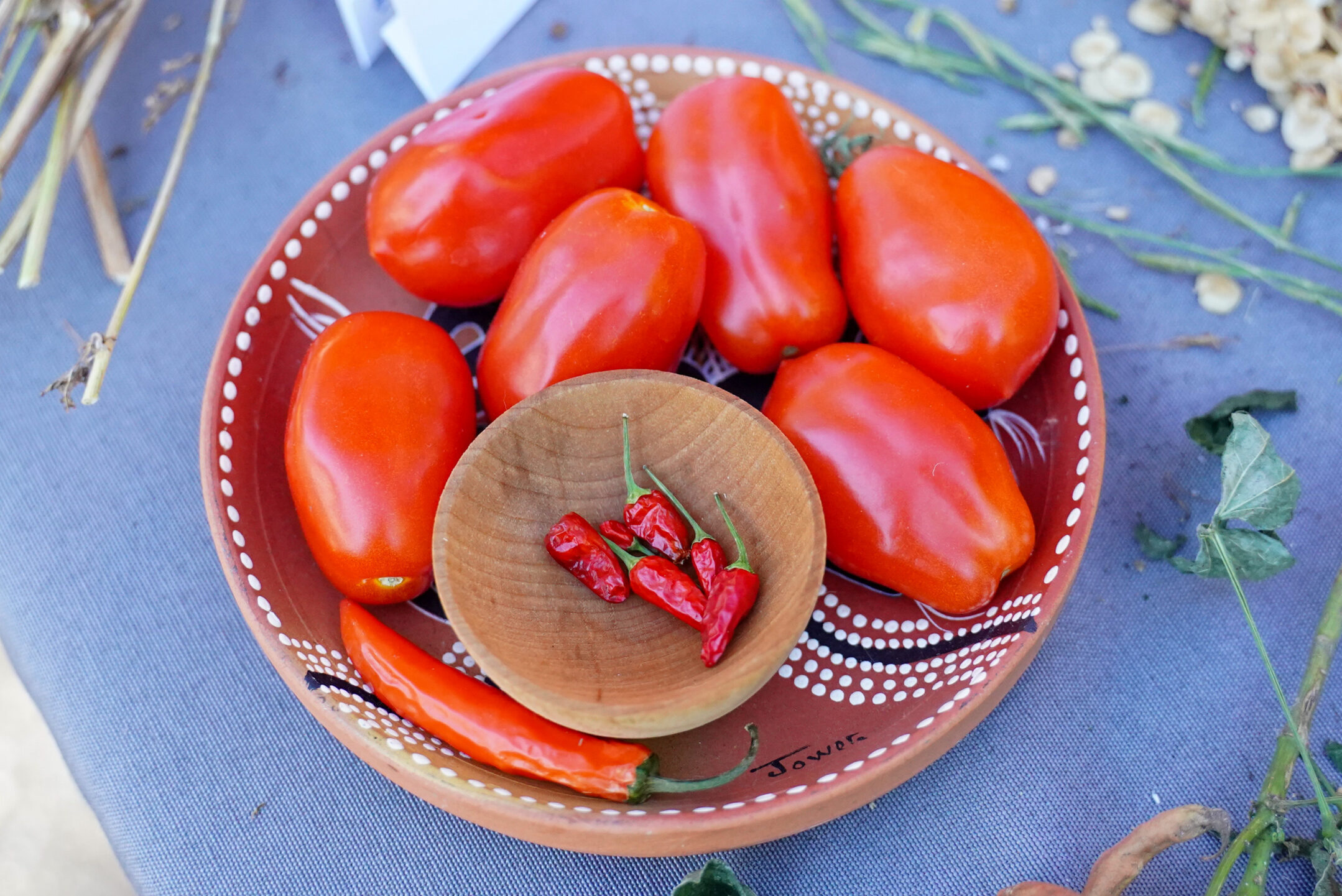
Community Data Commons
In order to leverage data as a disruptor for good, a Community Data Commons can be created, enabling residents to earn money from their collective purchasing data, if they choose to participate. Greater participation in the program will increase the power of the commons and benefit all. All data will be aggregated, indivisible to a single individual.
Research & Resources
In the News
CU grad students map Front Range food system in steps towards Universal Basic Food pilot
New research strengthens our understanding of the local food system and supports Metro Caring’s vision for a Universal Basic Food program.
Where does Metro Caring’s local food come from?
Meet the farmers and ranchers hard at work to bring fresh, healthy, Colorado food to our community.
The Case for Universal Basic Food
Moving toward a system that guarantees access to nutrient-dense food would nourish health, justice and community.

